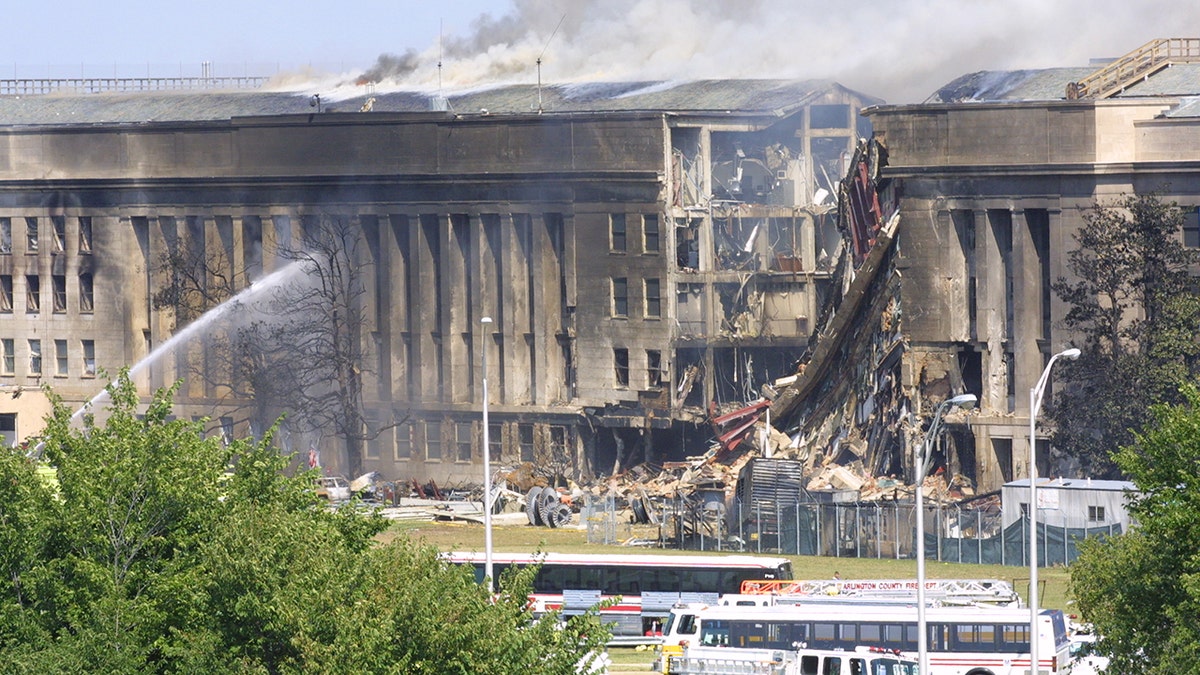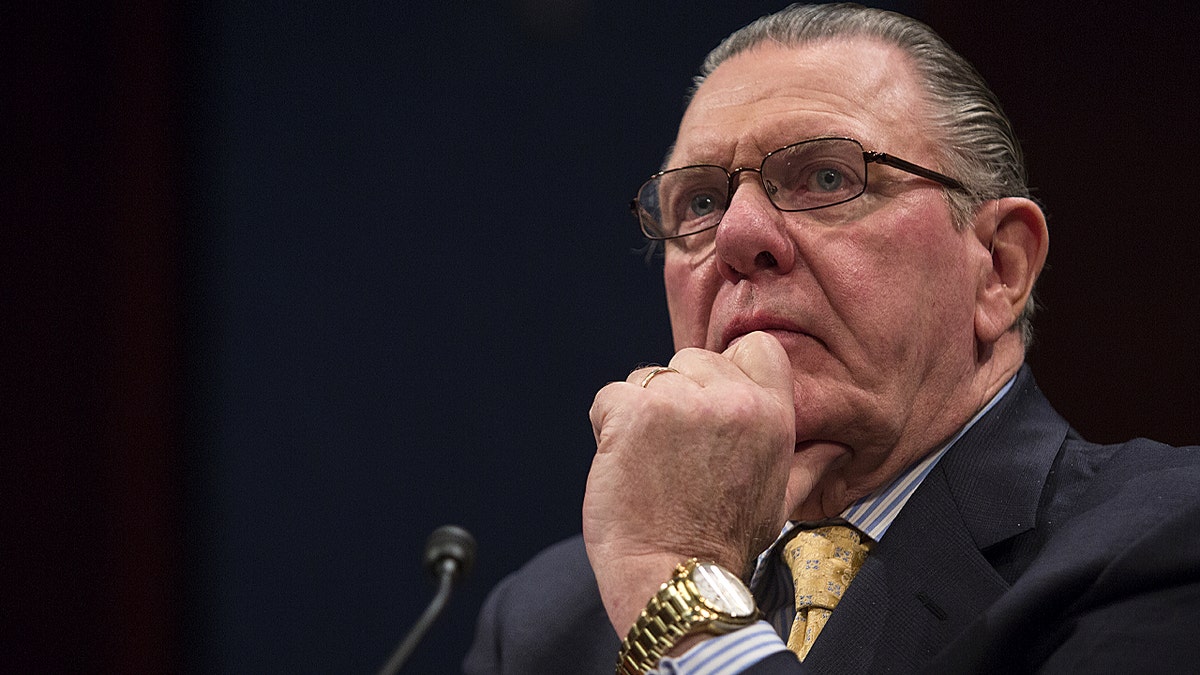Gen. Jack Keane: 'Barbaric thugs and killers' in Taliban's interim government
The Fox News senior strategic analyst argued it is no surprise the Taliban placed global terrorists in senior-level posts, one of which is wanted by the FBI and has a multi-million dollar bounty on his head.
Ret. Army Gen. Jack Keane on Friday described his experience inside the Pentagon on the morning of Sept. 11, 2001, as the U.S. approaches 20 years since the attack.
The retired four-star general and chairman of the Institute for the Study of War was working as the Army's vice chief of staff under President Bush at the time and was in a meeting when he heard news that two planes had crashed into both towers at the World Trade Center.
"I knew it was a terrorist attack," Keane told Fox News. "…I was getting a report from the chief of my operations center — a two-star general — and we were talking about an airplane that had come up I-95 and had come close to Washington, D.C.,and then back to the east and went south. We err discussing what, if any, evacuation procedures there were for buildings in D.C. when the plane hit and rocked the Pentagon."

394262 07: Smoke comes out from the Southwest E-ring of the Pentagon building September 11, 2001 in Arlington, Va., after a plane crashed into the building and set off a huge explosion. (Photo by Alex Wong/Getty Images)
As Keane and the chief of the operations center discussed why the plane turned away and the procedure for evacuating buildings in Washington, D.C., a plane hit the Pentagon, and smoke filled parts of the building "almost immediately." He then told the two-star general "to get the word to the Army writ large that the Army operation center was operational despite the attack, and that we would maintain that command and control of the Army around the world here."
Keane and his aide then wet some T-shirts in an office bathroom to prevent smoke inhalation and went to "assist people to get out of the building."
The former Army chief of staff said he lost 85 Army "teammates" that day. In total, 189 people died as a result of the attack on the Pentagon. Nearly 2,800 others were killed in the initial attacks on the World Trade Center.
"We knew we were at war," Keane said. "The first battle of that war took place in the Pentagon and the World Trade Center. I visited the hospital that night, five different hospitals. We had lots of wounded. Some of them stayed for weeks. I realized that there was a significant amount of heroism that had taken place from the patients in the hospital, as well as from my officers and CEOs and civilians who joined me in the operation center who had been assisting people outside."

Ret. Gen. Jack Keane, Chairman of the Board of the Institute for the Study of War, listens during a House Homeland Security and Foreign Affairs Committee hearing. (Photo By Al Drago/CQ Roll Call)
He added that officials at the Pentagon "knew everything had changed that day," and that the United States was "going to be at war with radical Islam."
"We knew it had to be Usama bin Laden, and we took steps that night before we went home about 1:00 or 2:00 in the morning to our support to Central Command, which would be given the authority to conduct what we knew would be a war in Afghanistan against al Qaeda."
Keane commanded the U.S. on keeping al Qaeda from attacking on American soil again, boosting its defenses and ensuring that Afghanistan did not become a "safe haven" for terrorists for years. He does fear, however, that the risk in Afghanistan has "gone up" since the Biden administration ordered a complete withdrawal of the military before Aug. 31.
CLICK HERE TO GET THE FOX NEWS APP
The challenge now, the retired general said, is whether U.S. officials will be able to "keep watch on the development of these radical Islamist groups inside of Afghanistan and also impact them so that they don't grow to a status where they could attack us again."
"My reflections today are about the victims that we lost," Keane said. "We honor them and we also honor the 9/11 generation who stood up and wanted to go out to protect America, and protect America, they did. They joined the military, they joined the intelligence services, and we're indebted to them because we've never had another attack on foreign soil again, which was the mission."


